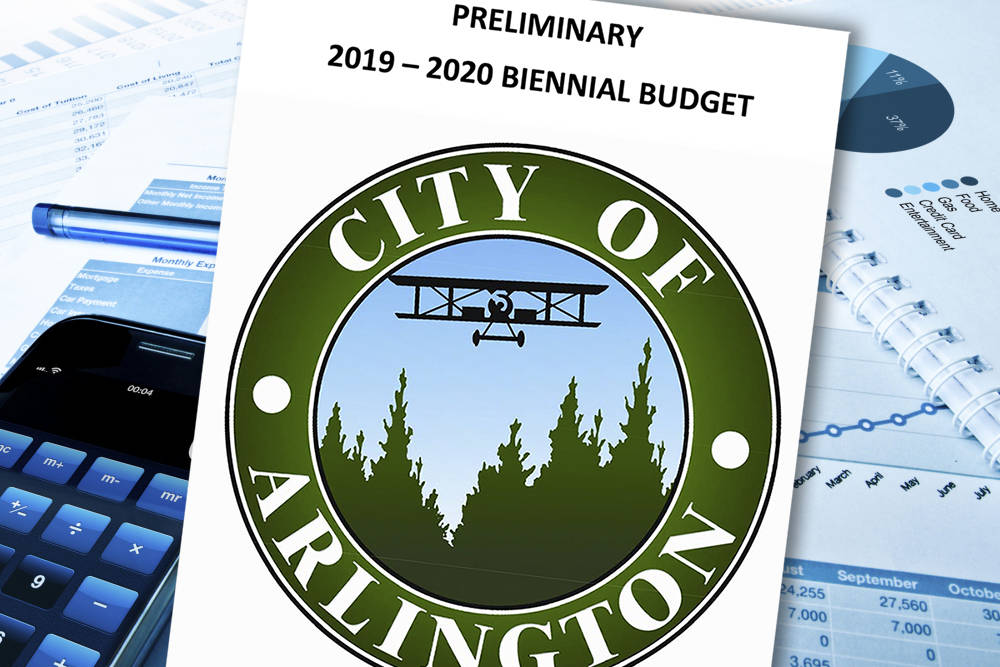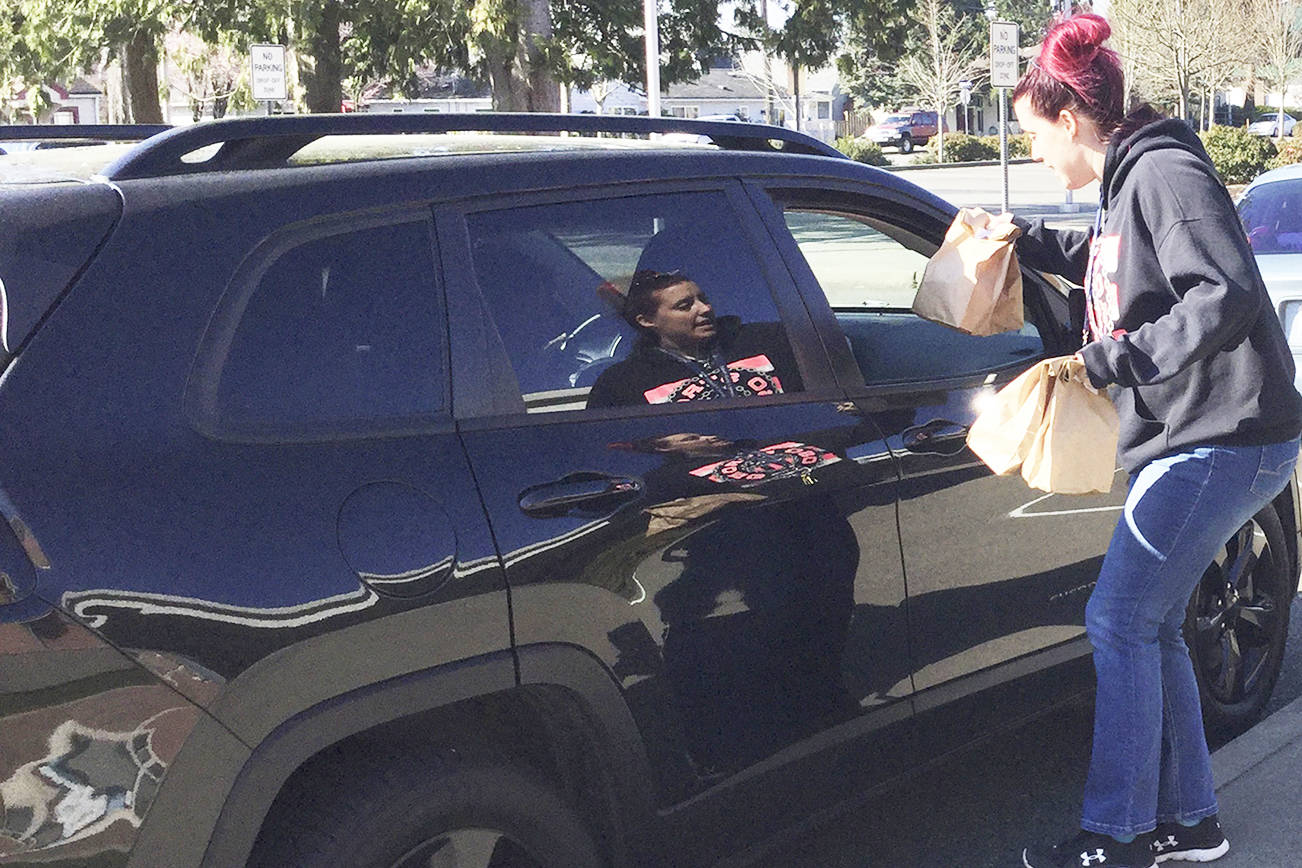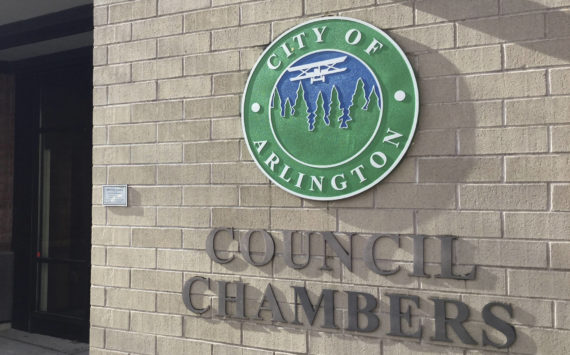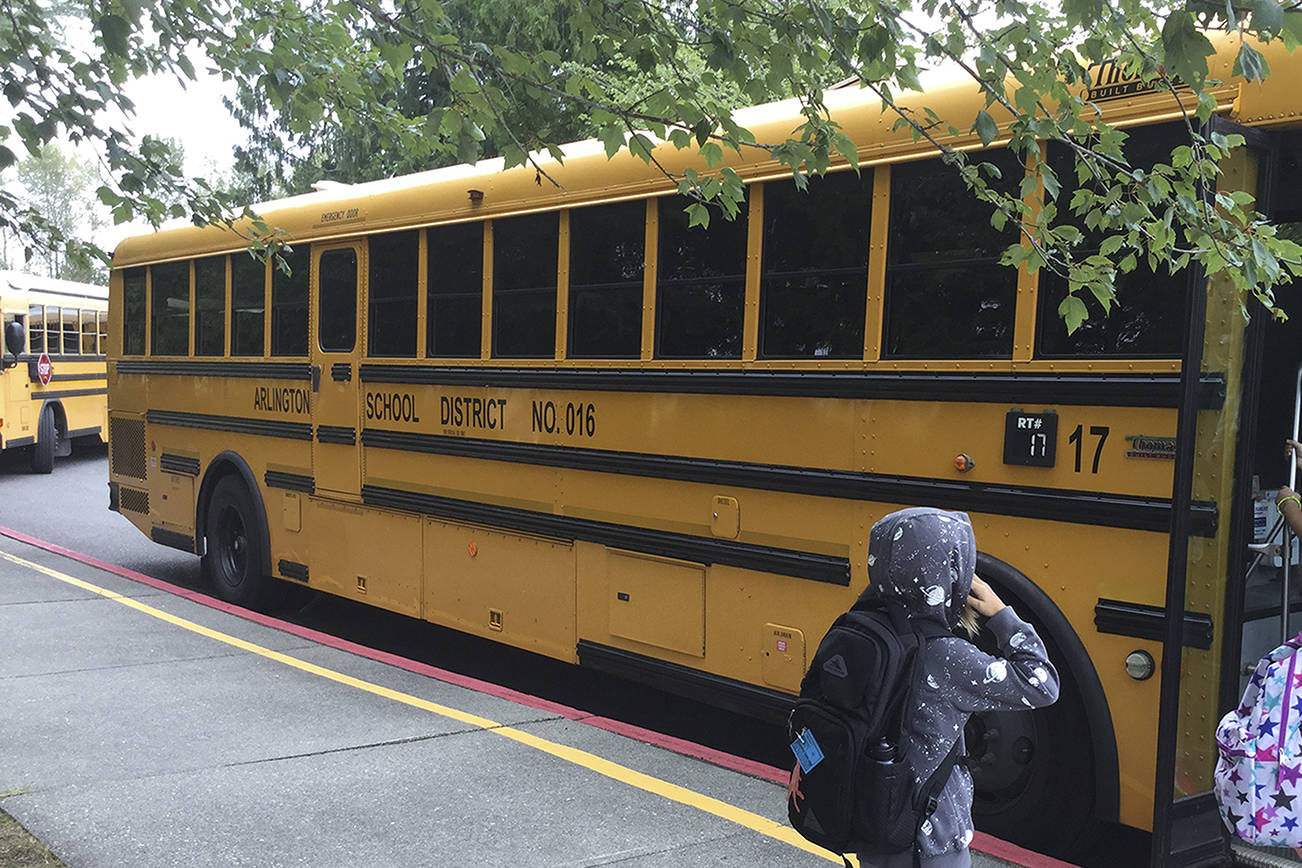ARLINGTON – Against a backdrop of steady economic growth, the city’s proposed biennial budget is making good on goals to bolster public safety and deliver transportation improvements – increasing the general fund 21 percent.
“We’re seeing the economy improve, we’ve constrained our (departmental) spending, and we’ve made progress in putting more into financial sustainability,” Mayor Barb Tolbert said at a recent City Council budget retreat.
A City Council public hearing for the budget is set for 7 p.m. Nov. 5 in council chambers at City Hall, 238 N. Olympic Ave.
“The budget as prepared is in response to what we’re hearing from citizens,” the mayor said, which means more emphasis on public safety, roads and traffic congestion, economic development that yields more family wage jobs and fiscal sustainability.
The 2019 preliminary budget is $54.2 million, with a general fund of $18 million – a 21 percent increase above 2018 spending. Most of the jump is due to adding police officers, vehicles and equipment; new firefighter positions; and rising public defender and jail costs.
The 2020 budget would total $57.4 million with an $18.4 general fund, which provides basic services including executive, police, fire, parks and recreation, and planning.
Arlington is in the eye of a construction boom, and city finance officials are forecasting increases of 5 percent in retail sales growth in each of the next two years.
The city expects to hire nine new employees in the next two years. The priority is public safety with an increase of six positions – three each in both of the police and fire departments. The other positions are for IT, passports and other administrative services.
Public safety accounts for 53 percent of general fund expenses, with a proposed police budget of $7.2 million next year.Along with general law enforcement, the department provides a community outreach program addressing homelessness and the opioid epidemic.
The proposed budget seeks additional funding for Northwest Incident Support chaplain services, a Domestic Violence coordinator, meeting increased jail costs and a higher contribution to the police equipment and vehicle replacement fund that would reduce how long patrol vehicles stay on the streets.
The fire department is anticipating three new hires with costs split with the EMS fund and partial funding for 2019-2021 through a grant; fire marshal and fire inspection services; a paramedic position; and fire academy training for three new personnel.
The budget also reflects increases in employee benefits, three union contracts under negotiations, and new premiums for the Paid Family Medical Leave Program. The total premium is .4 percent of gross wages with 37 percent paid by employers.
Additional highlights:
•In Community Development, an environmental impact statement for the Arlington-Marysville Manufacturing Industrial Center, a long-term revitalization plan for Arlington’s downtown corridor, and development of a business recruitment program. As an example of the latter, Arlington will contract with Buxton Analytics, an economics development analysis firm that will identify who the city’s customers are, and recruit retail, restaurant and other businesses.
• The Executive Department includes increases in professional services funding for miscellaneous programs that include social services and revitalization.
• Maintenance repairs in various city parks, along with several sidewalk and trail projects, most notably replacing fencing, restroom doors and the barbecue in Terrace Park.
• Capital projects in 2019 include $75,000 to pave the merchants and Masons parking lot on Olympic Avenue, and grant match funding for the $250,000 Burlington-Northern Santa Fe/67th Avenue rail project.
• The city’s transportation improvement fund is anticipated to include about $4.5 million in grants to help projects such as 173rd Street design and construction in Smokey Point, the 204th Street/77th Avenue roundabout, design and right of way for the 40th Avenue/Highway 531 intersection, and a traffic light at 204th and 74th Avenue.
• Transportation Benefit District funds totaling $1.7 million in 2019 to carry on pavement preservation work.
• Major utility projects are highlighted by a new water source development study, water main replacements, Haller well house improvements and 43rd Avenue extension, and on the sewer side line design and replacement, compost facility improvements and lift station upgrades.
City fiscal policies require reserves equal to 8 percent of budgeted taxes, licensing and permit revenues, which can be used to address unplanned expenditures. The reserve fund will be at $1.05 million in 2019 and $1.08 million for 2020.
Finance Director Kristin Garcia said the city will also develop a long-range capital facilities budget, as well as a 10-year outlook financial plan.
To view the preliminary budget online, visit www.arlingtonwa.gov.







